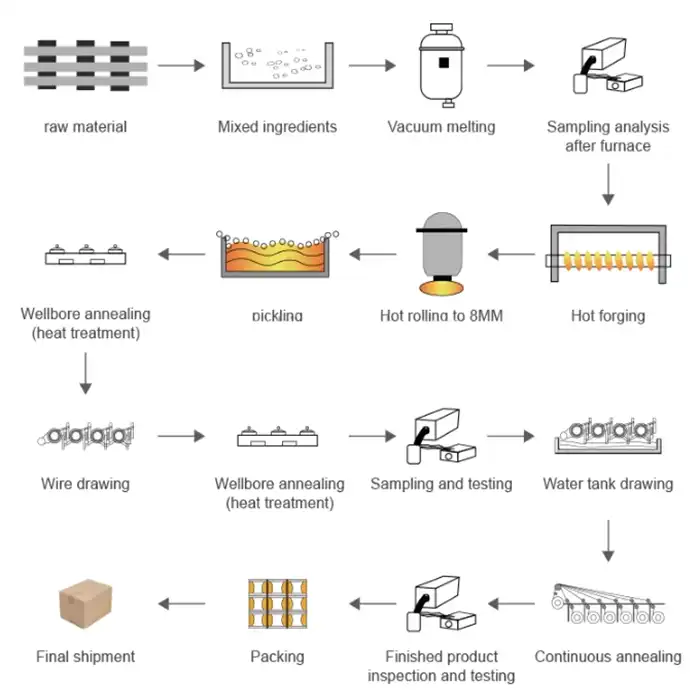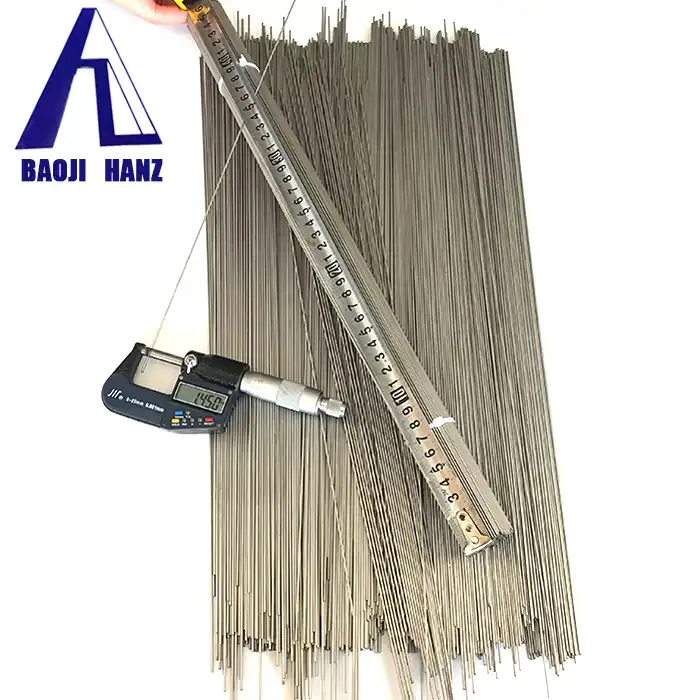Can nitinol guide wires be customized?
2024-08-24 20:23:22
Nitinol guide wires are a critical component in various medical and industrial applications, known for their unique properties of shape memory and superelasticity. These qualities make them invaluable for navigating complex procedures or environments. This blog post explores whether nitinol guide wires can be customized and examines the various factors that influence their customization. We’ll also delve into related high-interest topics, such as the benefits of custom nitinol guide wires, the design challenges involved, and how customization impacts performance.
Can Nitinol Guide Wires Be Customized?
Yes, nitinol guide wires can be customized to meet specific needs and applications. Nitinol, an alloy of nickel and titanium, possesses remarkable properties that can be tailored through careful engineering. The customization of nitinol guide wires can address specific requirements related to flexibility, strength, diameter, length, and coating. This ability to adapt the guide wire to precise specifications ensures better performance in medical procedures or other industrial uses.
What Are the Benefits of Customizing Nitinol Guide Wires?
Customizing nitinol guide wires provides several advantages. Firstly, it allows for precise control over the wire's mechanical properties. By adjusting the alloy composition and heat treatment processes, manufacturers can optimize the wire's flexibility and superelasticity for specific applications. This customization enhances the wire's ability to navigate complex anatomical structures or intricate industrial setups with greater ease and reliability.
Moreover, customized guide wires can be designed to fit specific procedural requirements, such as different diameters and lengths, which improves their effectiveness and safety. In medical applications, for instance, this customization can lead to better patient outcomes by enabling more accurate placement of medical devices. Similarly, in industrial applications, customized wires can improve the efficiency and safety of various operations.
How Do Design Challenges Affect the Customization of Nitinol Guide Wires?
Customizing nitinol guide wires involves overcoming several design challenges. One major challenge is achieving the right balance between flexibility and strength. Nitinol’s superelasticity can be adjusted through the alloy’s composition and heat treatment, but this requires precise control to avoid compromising the wire’s performance. Engineers must carefully calibrate these parameters to meet the specific needs of each application.
Another challenge is the manufacturing process. Producing custom nitinol guide wires involves advanced technology and equipment to ensure consistency and precision. High-quality control measures are essential to maintain the alloy's properties and ensure that the final product meets the desired specifications.
Additionally, customization often involves collaborative efforts between manufacturers and end-users to understand the exact requirements and adjust the design accordingly. This process can be time-consuming and may require multiple iterations to perfect the guide wire's design.
How Does Customization Impact the Performance of Nitinol Guide Wires?
The performance of nitinol guide wires is significantly impacted by their customization. Customized wires are designed to meet specific application needs, resulting in improved performance. For medical guide wires, this means enhanced maneuverability and precision, leading to better procedural outcomes and reduced risks for patients. For industrial applications, customized guide wires can lead to more efficient operations and increased safety.
Customization also allows for the integration of additional features, such as specialized coatings or tip configurations, which can further enhance the wire’s performance and suitability for particular tasks. These improvements can result in increased reliability and effectiveness in various applications.
Manufacturing Technique

About Baoji Hanz Metal Material Co., Ltd.
Baoji Hanz Metal Material Co., Ltd., established on November 15, 2017, is located in the Baoji Titanium Valley Nonferrous Metals Base in China. The company is dedicated to producing high-quality nitinol shape memory alloys, superelastic nitinol alloys, and nickel titanium alloys. With advanced production and processing equipment, cutting-edge technology, and a professional team, Baoji Hanz excels in the design, manufacturing, and service of industrial furnaces and mechanical equipment.
The company focuses on the conversion of scientific research results into practical applications and the localization of imported products. Baoji Hanz has successfully completed major projects involving high-purity metal material preparation, ultra-large and ultra-thin casting, and radiation generation and control material development. Their commitment to innovation and quality ensures that they continue to offer new market opportunities and solutions for material purification, processing, and preparation.
Contact Us
For more information about our nitinol guide wires or to discuss customization options, please contact us at baojihanz-niti@hanztech.cn. Our team is ready to assist you with any inquiries and provide tailored solutions to meet your specific needs.
References
- "Nitinol Guide Wire: An Overview of its Properties and Applications," Journal of Biomedical Materials Research.
- "The Customization of Nitinol Guide Wires for Medical Use," Medical Device Technology.
- "Design Challenges and Solutions in Nitinol Guide Wire Production," Materials Science and Engineering.
- "Advancements in Nitinol Alloy Technology and Applications," International Journal of Advanced Manufacturing Technology.
- "Custom Nitinol Guide Wires in Industrial Applications," Industrial Engineering Journal.
